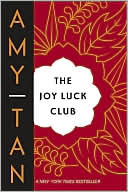Sunday, October 17, 2010
2010 Man Booker Prize
Friday, October 1, 2010
right to choose
Wednesday, September 22, 2010
hiatus
Sunday, August 8, 2010
a merry rant: desperate measures of christianity
Wednesday, August 4, 2010
book beauty: american sea writing

Sunday, August 1, 2010
response: the joy luck club

Tuesday, July 27, 2010
just a note: the man booker prize
Saturday, July 24, 2010
uk: stratford, then london

Thursday, July 22, 2010
uk: lake district
“And from the blessed power that rolls
About, below, above,
We’ll frame the measure of our souls,
They shall be tuned to love.”
(Wm. Wordsworth)
Wednesday, July 21, 2010
uk: edinburgh
12 May 2010 - I’m sitting in Edinburgh’s La Café Royale anticipating a “Traditional Scottish Scone” and a “White Coffee.” I don’t know what exactly these are (which is why I ordered them).
14 May 2010 - Sitting in The Elephant, “The Birthplace of Harry Potter,” sipping a drink. There’s no sign of the franchise within the café, a gimmick they could have easily exploited and yet I only saw a small subheading on a sign outside. I imagine that were a place in the U.S. attached to such a phenomenon the commercialism would have erupted throughout the entire street. America's cultural roots are shallow, and its society follows currents with little resistance
- - -
After The Elephant I continued walking down the street for the university. The shops became less refined and more hip, the style less polished – telling signs of collegiate culture. Nonetheless, as I turned a corner there were less people and the buildings hid the sun, deflating my confidence. I saw a tall man about my age carrying a backpack, so I got some directions from him which I followed until I approached a square, the “hideous modern building- you can’t miss it” on the left and the Student Union, a cathedral-like building, towards the right. A large man of about thirty, dressed all in black, interacted with each of the students at the door. A student union bouncer?
Resolutely I walked to the foot of the stairs and looked up to the man.
“Excuse me. Would I have to be a student to go in there?”
He smiled slyly down his nose, “Technically.”
“Oh. Technically?”
“Mmhmm.” He paused. “Do you want a look around?”
I perked, “Yes! Please.”
He stepped aside and nodded toward the door.
Tuesday, July 20, 2010
uk: oban to the isle of iona






Monday, July 19, 2010
uk: arriving in scotland


Sunday, July 18, 2010
a new series















